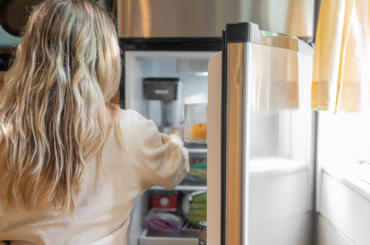Are your kids “addicted” to screens? Some kids may have a hard time creating healthy boundaries with their devices — and parents know the stakes are high. Kids and teens who spend a lot of time on their phones tend to have worse anxiety and depression, feel worse about how they look, don’t sleep as well, and have a harder time concentrating in school and on other activities they love.
Why are screens so addictive?
If your attempts to get your kids offline often end in frustration, it can be helpful to level with them about screen addiction, and why it’s so hard to put their phones down. Kids are more open to this discussion when you point out that it isn’t their fault. Society expects parents to control kids’ screen time. Parents expect kids to follow their rules about screen time. Both parents and kids feel guilty that they struggle to meet those expectations.
However, the reason behind this constant struggle is actually that social media companies are deliberately manipulating us for profit. They create intentionally addictive design elements in their platforms, such as —
- Swipe to refresh motions that are built on the same principles as slot machines to create addictive doses of dopamine in our brains
- Push notifications to make you feel like you’re missing out if you’re not online
- Auto-play features that endlessly serve more content
- Promoting “likes,” which encourage frequent check-ins so users get the dose of oxytocin that we’ve evolved to reward social acceptance
What should I say to my kids about screen addiction?
Screen addiction has a simple explanation — the longer we’re online, the more money they make. We can’t realistically expect parents or kids to fight against the motivations of huge corporations. Making your kids aware of the sneaky ways social media is manipulating them can help. This script is one way you could approach that conversation at home —
- Let them know it’s not their fault. You can say, “Hey, can I talk to you for a sec? Without your phone? I know, I know. But you know what I’m gonna say, right? Too much time online isn’t healthy! Listen. If it feels hard to put your phone down, you should know that it’s not your fault. There are a lot of very rich, smart people making it hard for us to get offline.”
- Explain big tech’s role. You can say, “I mean that big tech companies intentionally design their platforms to be addictive. They make money from ads, so the more time you spend there, the more money they make. There are also other addictive elements of the apps you love, like push notifications, infinite scroll, and auto-play features that endlessly serve more content.”
- Reveal the tricks of the trade. You can say, “These apps promote ‘likes’ to encourage you to check posts frequently, because getting likes releases oxytocin, a feel-good brain chemical. And they use sneaky tricks to keep us online. Like, did you know the whole ‘swipe to refresh’ motion they use on TikTok and Insta uses the same principles as slot machines? It makes our brain release dopamine, another feel-good chemical. But just like drugs or alcohol, our brains adjust and it takes more and more scrolling to feel the same amount of good. That means we end up online longer and longer, making those rich people richer and richer.”
- Make a plan together. You can say, “There are some things we can do together to make it easier to beat their addictive tech design. We could schedule a daily time to turn off devices and charge them overnight in a common area, or set time limits on certain platforms, or overall to limit time on social media. What sounds reasonable to you?”
Not sure if your child’s screen time is problematic? Take this quiz to find out. Then, check out these helpful ideas for transitioning your kid from screen time to offline activities.







